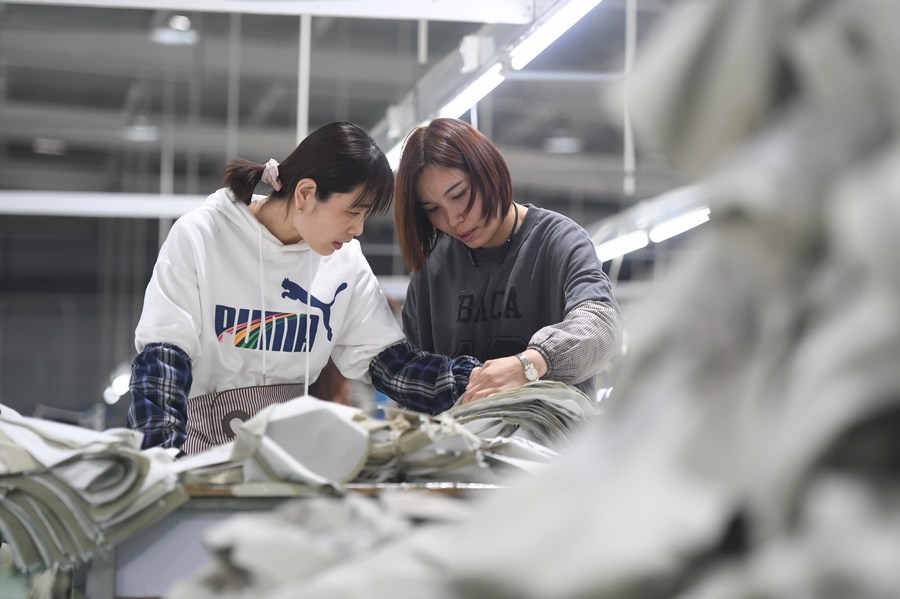Self-employed businesses enter new era as regulation takes effect
 Employees work in a garment factory in Nanhe District of Xingtai City, north China's Hebei Province, March 28, 2021. (Xinhua/Zhu Xudong)
Employees work in a garment factory in Nanhe District of Xingtai City, north China's Hebei Province, March 28, 2021. (Xinhua/Zhu Xudong)
A major regulation to promote China's self-employed businesses came into force on Tuesday — and government officials and industry experts said it will greatly stabilize expectations of individual businesses amid COVID-19, and drive the real economy over the long term.
The regulation promises greater supportive policies, including on taxation, finance, employment, digital development and intellectual property protection, to individual businesses. It stipulates, for instance, that local governments should increase the supply of business premises and reduce costs like electricity and rents.
"The move aims to inject practical impetus into individual or family-run small businesses, which play an irreplaceable role in promoting economic development, driving employment, increasing income, and facilitating people's lives," said Pu Chun, deputy head of the State Administration for Market Regulation, during a news conference on Tuesday.
"Notably, recent years have witnessed rising self-employed businesses from emerging sectors like livestreaming, micro-sized e-commerce and new media. They account for nearly 30 percent of the country's total self-employed households and offer new vitality into the market," he said.
According to him, more than 111 million self-employed businesses were registered nationwide as of the end of September, accounting for two-thirds of the country's total number of market players. Up to 90 percent of them focused on the tertiary sector, including retailing, accommodation and catering, and residential services.
Wei Jianguo, former vice-minister of commerce and vice-chairman of the China Center for International Economic Exchanges, said that the measures included in the regulation are "timely and targeted".
"It will greatly boost confidence and stabilize market expectations for these self-employed businesses, especially when many of them are facing difficulties in operating costs, recruitment, and getting loans amid the pandemic," Wei said.
A survey provided by the administration to China Daily showed that since the beginning of this year, nearly 80 percent of individual households brought in an average monthly operating income of less than 10,000 yuan ($1,389), which can only support basic living standards.
"Compared with previous support policies, the new regulation emphasizes that the authorities concerned should not discriminate against self-employed businesses when putting forward policies, as such businesses, which are usually small in scale and have a limited voice, are vulnerable to discrimination from all aspects in their business activities," Wei said.
Over the past few years, the government has launched a package of policies to support the development of self-employed businesses or cottage industries.
"A combined tax supporting policy will be implemented this year to further support self-employed businesses. Specifically, they can enjoy large-scale VAT (value added tax) refund policies like other enterprises," said Dai Shiyou, an official with the State Taxation Administration.
Dai said that from 2020 to the end of September this year, more than 1 trillion yuan worth of taxes and fees have been reduced for such groups.